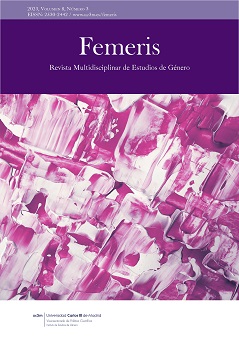Does Politics even use Lipstick? A study on power, gender, and legitimacy in Brazilian Politics
Abstract
Although societies have made some progress in gender equality, in most countries, women remain a minority in parliaments. In Brazil, women work, vote, syndicate, and exercise other fundamental rights. However, in many areas, especially those related to work, the participation of women still needs to be questioned, as is the case of political participation. This investigation aimed to investigate how Brazilian female political representatives see the scenario of female participation in the country’s politics. For this, the theories of the Glass Ceiling with that of Max Weber’s Legitimacy of Power were associated. The study is qualitative in the qualitative approach and the narrative method, with structured interviews applied to state and federal deputies and Brazilian senators; the discourse analysis technique was used. The fusion of the two theories provided resources for the analysis of power if considered gender and the understanding of the role of sexism in the low rates of female participation in politics. There is a vicious circle in which the female population hardly gets involved in public life because it oversees private life and the few women who participate face many obstacles. It is up to the parties’ fundamental role to include women in their staff, not only to comply with Brazilian legal provisions but also to eradicate the idea that politics is masculine.
Downloads
FEMERIS es una revista del Instituto de Estudios de Género pertenenciente a la Universidad Carlos III.
Los textos publicados en esta revista están –si no se indica lo contrario– bajo una licencia Reconocimiento-Sin obras derivadas 3.0 España de Creative Commons. Permite Atribución-NoComercial-SinDerivadas 3.0 España.
La licencia completa se puede consultar en:http://creativecommons.org/licenses/by-nd/3.0/es/deed.es




